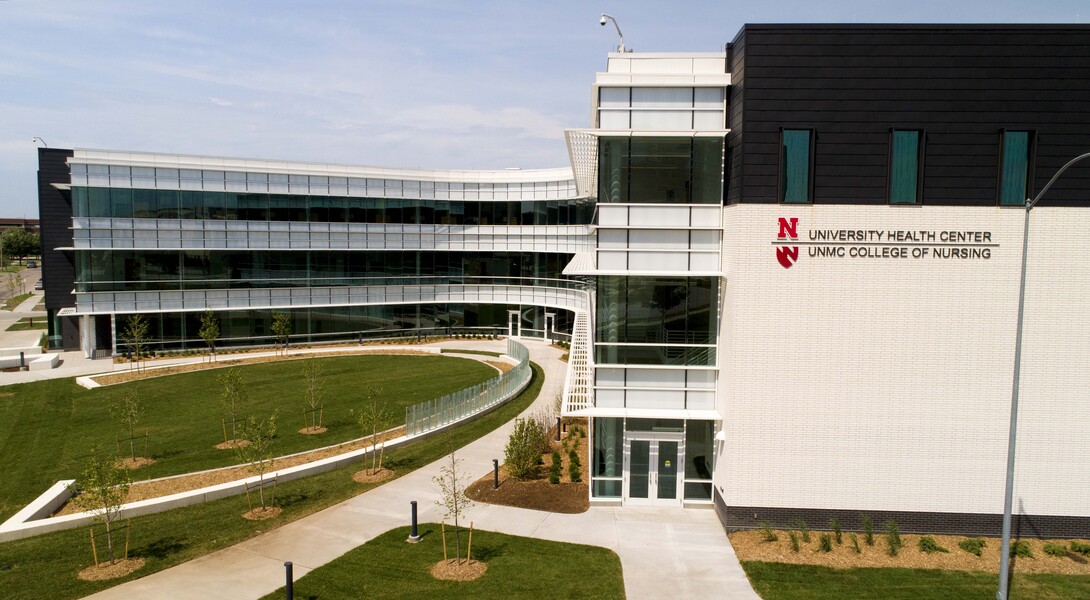
Responses to COVID-19 have allowed the University Health Center to adapt and better meet the acute care needs of students, faculty and staff.
Since the University of Nebraska–Lincoln’s late-March transition to online instruction and (primarily) remote working, the Nebraska Medicine-led campus health center has launched telehealth services; extended acute care to faculty, staff and their significant others; established enhanced safety measures; rolled out two new patient-centric apps; adjusted pharmacy services to include curbside delivery; and expanded support services and procedures to its workers.
As each of these pivots was made, the health center remained open, offering key services to the entire university community.
“Like the rest of campus, the University Health Center has seen a lot of changes in the last two months,” said Dr. Heather Eberspacher, medical director of the health center. “But, we’re still here and everything is going well. We’ve streamlined our procedures and we’re doing everything we can to protect our staff while offering top-level health services to the campus community.”
One of the largest shifts has come in offering telehealth services for primary care, mental health medication management, nutrition counseling and physical therapy. The service decreases potential virus exposure for all and allows patients to connect with University Health Center providers when it is most convenient.
“Our primary focus in offering telehealth was implementing a system that follows the strictest HIPAA guidelines and security for patient data,” Eberspacher said. “It was a huge undertaking, especially for our (information technology) group, but it’s proven invaluable.”
The health center is averaging about 60 telehealth consultations a day, a number that is expected to climb as all patients go through virtual screenings before in-person appointments are scheduled.
Individuals who do need in-person care are expected to follow new protocols — which include using the health center’s north entrance, washing hands upon entry, wearing a mask and completing a brief symptom screening.
Additional protections include enhanced cleaning with hourly sanitization of high-touch areas; social distancing at check-in and in patient waiting areas; scheduling wellness and acute care appointments at separate times of the day; and rotating staff schedules to limit potential exposure.
The University Health Center is also taking additional measures to support staff members’ mental health during this time. Those supports include the addition of a relaxation room.
“If anyone on our staff is feeling taxed or stressed, we have a room that they can go to and get away in a quiet, calming environment for a few minutes,” Eberspacher said. “It’s a small thing, but offering mental health supports at this time is very important to us.”
Other recent updates to the University Health Center’s services in response to COVID-19 include:
Offering acute care services to faculty and staff;
Providing curbside delivery for prescriptions and over-the-counter items through the health center pharmacy;
Launching two new apps — Nebraska Medicine, which allows patients to access telehealth services, set appointments, and access and pay bills; and Nebraska Medicine Pharmacy, which allows refill requests and offers reminders to take medications; and
Creating a procedure that allows for COVID-19 testing.
The University Health Center remains open to students, faculty and staff from 8 a.m. to 5 p.m. weekdays. Appointments can be made by calling 402-472-5000.
“Remaining open during this pandemic and serving the health needs of the university community means everything to us,” Eberspacher said. “This is a difficult time, but the challenges we face are why each of us went into the field of medicine. This is our passion. This is why we chose this career.”







